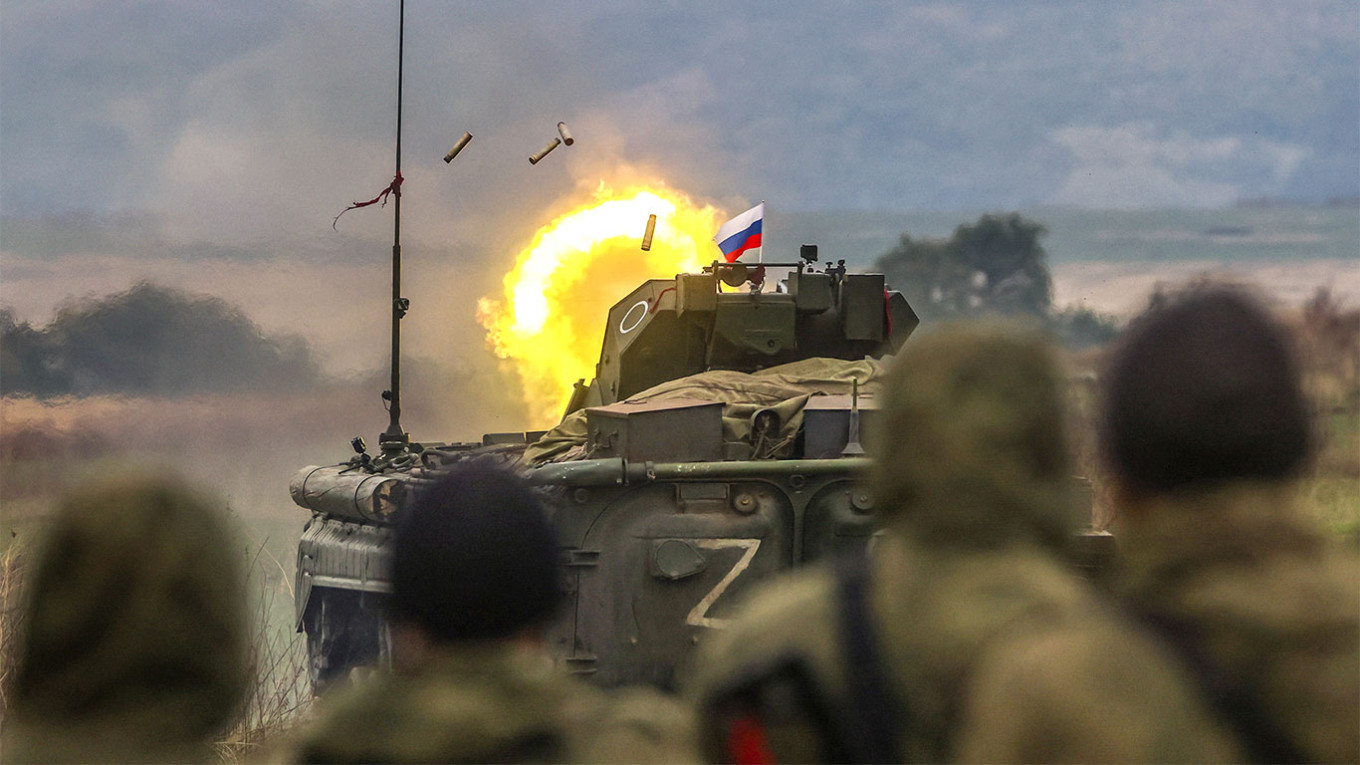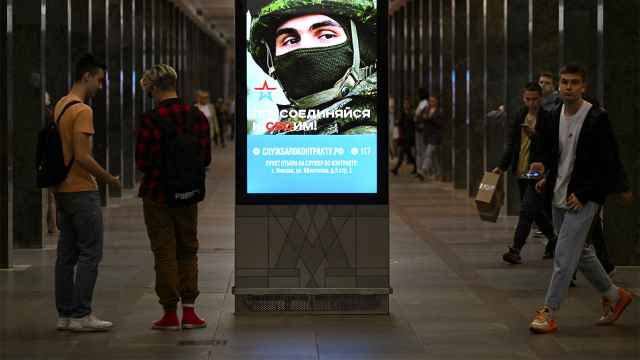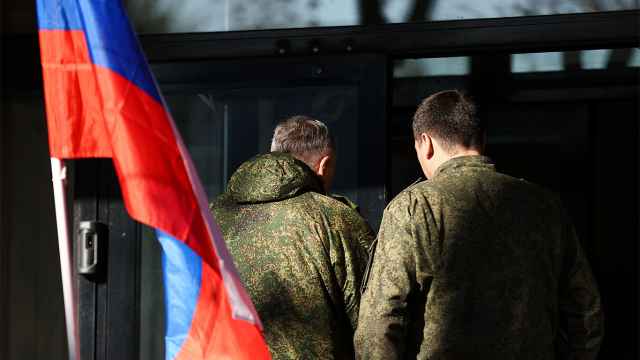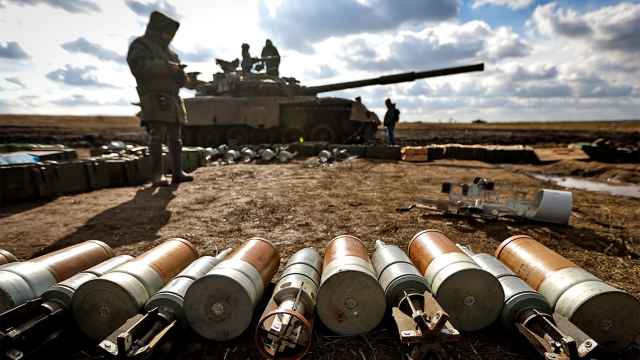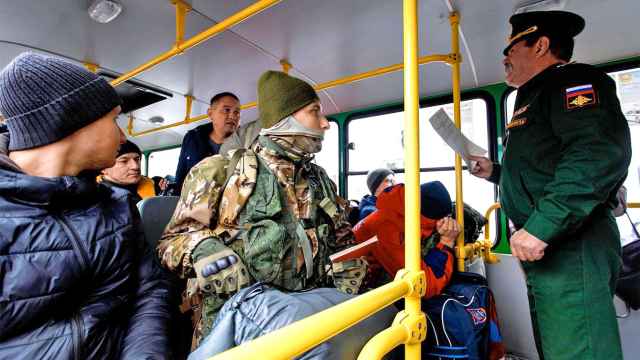St. Petersburg lawyer Andrei Nikiforov was drafted into the Russian army four days after Russian President Vladimir Putin announced a “partial” mobilization in a bid to solve the military’s manpower problems in the ongoing Ukraine war.
Less than two weeks later, Nikiforov became one of the first mobilized men to be killed as Ukraine pushed forward with its successful counteroffensive.
“His sister received the draft paper,” Alexander Zelensky, president of the Neva Bar Association of which Nikiforov was a member, told The Moscow Times. “He notified me about it, gathered his belongings the next day and went to the training center.”
Human rights lawyer Pavel Chikov wrote on Telegram on Thursday that Nikiforov was killed near the occupied Ukrainian city of Lysychansk on Oct. 7.
“He was a good person, honest and brave,” said Zelensky.
Reports of mobilized soldiers dying in Ukraine — from lawyers such as Nikiforov to residents of far-flung Siberian villages and even former Moscow officials — have emerged with increasing rapidity in recent days, suggesting that new soldiers have been thrown into battle with minimal training.
Three mobilized men aged 32, 40 and 42 from Siberia’s Krasnoyarsk region died in Ukraine on Oct. 8, local media reported Friday.
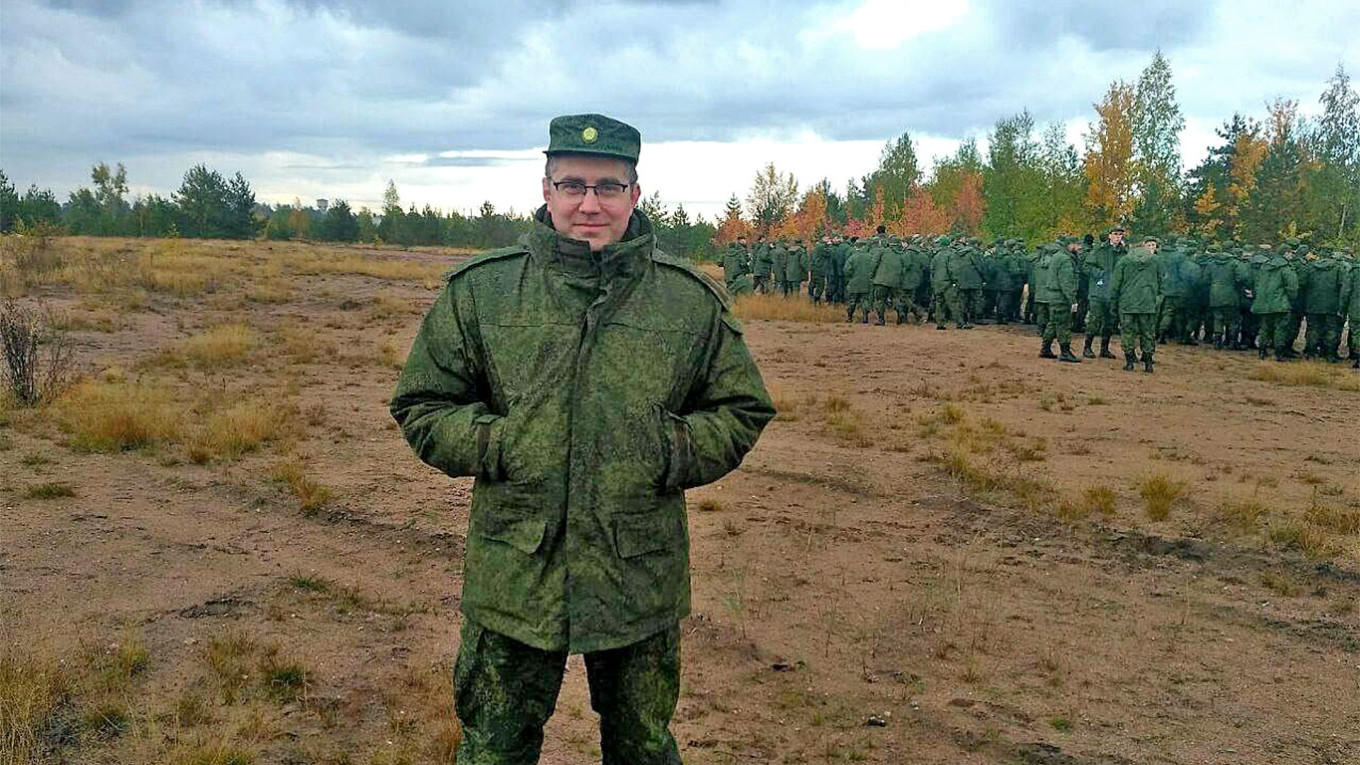
ll three of the men were reportedly killed exactly 10 days after they were drafted.
And local authorities in Russia’s Chelyabinsk region, near the Ural mountains, confirmed Thursday the death of five mobilized men from the region’s Korkino district.
“We are mourning with the relatives and express our deepest and most sincere condolences,” said a spokesperson for the region's governor, Alexei Teksler, local news outlet 74.ru reported.
But the deaths in Chelyabinsk also caused outrage on social media, with some locals asking why the men appeared not to have been given any training.
“Does Teksler, perhaps, have a desire to check why the boys ended up at the front lines in just a week and died with no training and no necessary equipment?” user Anyuta Stepanova wrote in response to a post about the deaths on social network VKontakte.
When announcing mobilization on Sept. 21, Putin pledged that all men drafted into the army would receive extra training before being sent to the front.
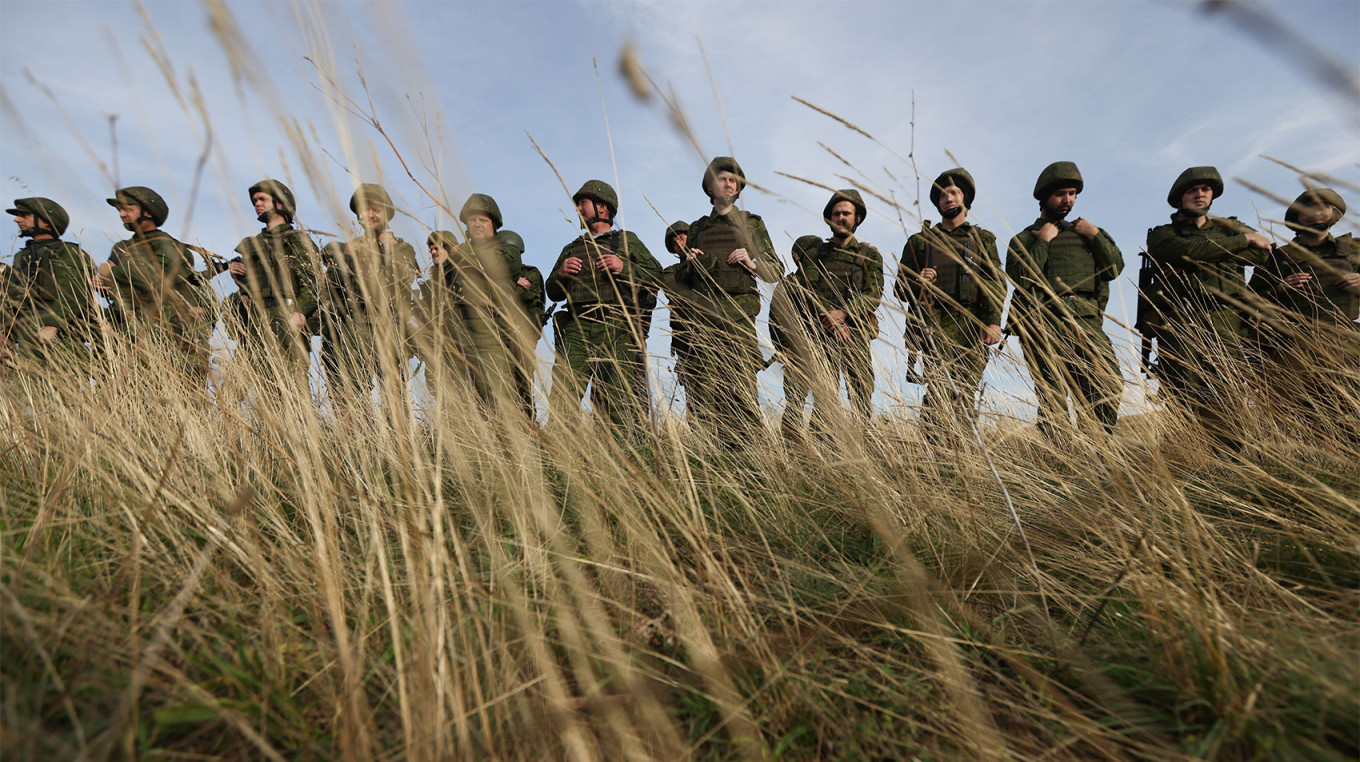
Despite confirming the number of dead draftees, the Chelyabinsk authorities neither revealed the circumstances of the death nor the names of the five soldiers — fueling panic among locals who hadn’t received any news from mobilized relatives.
“People haven’t been able to reach [their relatives] since Oct. 3,” one user, Irina Baumgertner, wrote in a comment under a post about the deaths.
“Don’t spread fake news. Have some compassion for the wives and mothers who are waiting for the boys and have no contact with them,” said user Katerina Korytkina.
The number of mobilized men to have been killed in Ukraine is likely to be far higher than the handful of names so far publicly confirmed.
The announcements are not made according to when the soldier was killed on the battlefield, according to Valentina Grebenik, executive secretary for the Union of the Committees of Soldiers’ Mothers of Russia.
“The body has to be brought back to Russia… the [necessary] documents completed and only after that will they notify the families,” she told The Moscow Times.
Even Kremlin loyalists have expressed concern about the lack of training provided to mobilized men, some of whom appear to not have had any prior military experience.
The deputy editor-in-chief of Russia’s state-run RT Natalya Loseva confirmed Thursday the death of Alexei Martynov, 28, the former head of a Moscow city government department who was mobilized shortly after Putin’s announcement and died 17 days later.
“He had zero combat experience. He was sent to the frontlines just several days after he was drafted,” Loseva wrote on Telegram.
“Military officials, this is not the time to lie.”
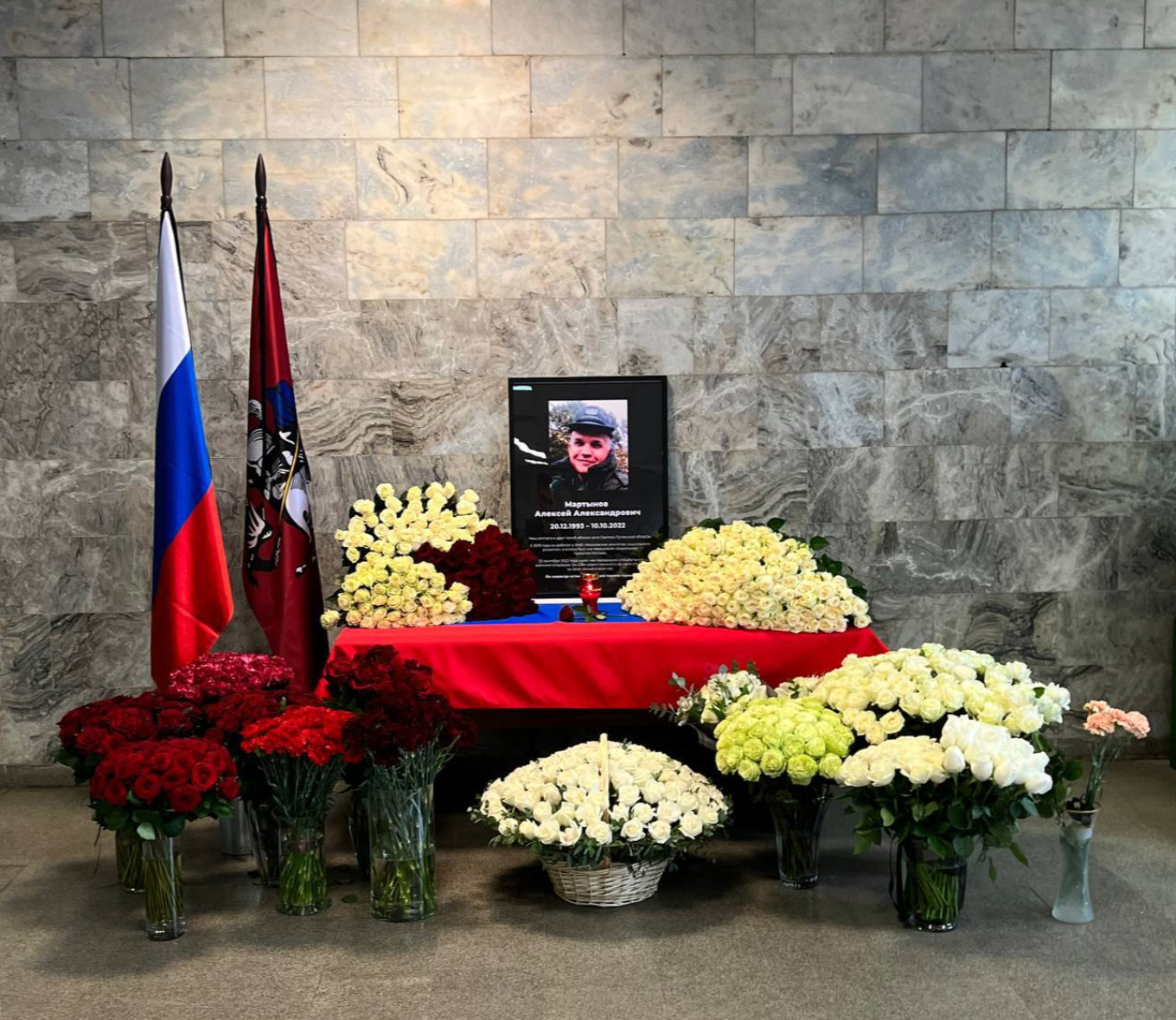
Russia has drafted 222,000 reservists in the three weeks since mobilization began, Putin told journalists at a press conference Friday in Kazakhstan, adding that mobilization will end in a couple of weeks when the number of drafted men reaches 300,000.
Though many observers have speculated coffins with the bodies of the mobilized soldiers could spark discontent, that tipping point appeared to be a distant prospect.
Several relatives of killed mobilized men declined to speak to The Moscow Times.
And, in the Chelyabinsk region, many locals commenting online expressed their “pride” in the “heroes” who had died for a rightful cause.
“Knowing my compatriots, I understand that they are, of course, mourning the loss with every fiber of their heart,” Alexander Kerdan, who lives in the same district as the men who were killed and composed a poem in their honor, told The Moscow Times. “But they are also proud of their sons and brothers who courageously fulfilled their military duty.”
The reaction of people to the deaths of mobilized soldiers will depend on how fast the bodies are returned to Russia, according to independent military analyst Pavel Luzin.
“Given the fact that the least outspoken, most complacent and most legally illiterate were sent to the frontlines first, no quick reaction should be expected from their social circles,” Luzin told The Moscow Times.
“But it is possible that the next ones are going to understand what is happening to them much quicker.”
A Message from The Moscow Times:
Dear readers,
We are facing unprecedented challenges. Russia's Prosecutor General's Office has designated The Moscow Times as an "undesirable" organization, criminalizing our work and putting our staff at risk of prosecution. This follows our earlier unjust labeling as a "foreign agent."
These actions are direct attempts to silence independent journalism in Russia. The authorities claim our work "discredits the decisions of the Russian leadership." We see things differently: we strive to provide accurate, unbiased reporting on Russia.
We, the journalists of The Moscow Times, refuse to be silenced. But to continue our work, we need your help.
Your support, no matter how small, makes a world of difference. If you can, please support us monthly starting from just $2. It's quick to set up, and every contribution makes a significant impact.
By supporting The Moscow Times, you're defending open, independent journalism in the face of repression. Thank you for standing with us.
Remind me later.



